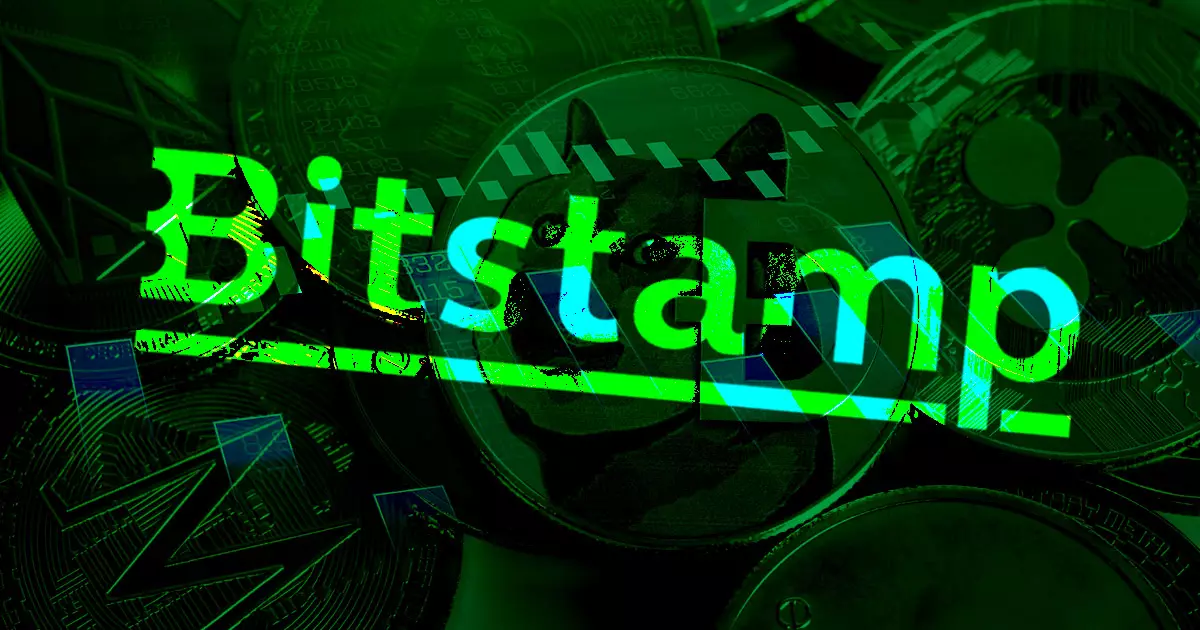Bitstamp, a popular cryptocurrency exchange, recently announced that it would be halting U.S. trading for several cryptocurrencies. The decision comes in response to recent cases against other major exchanges, namely Binance and Coinbase, where certain cryptocurrencies were declared securities by the U.S. Securities and Exchange Commission (SEC). This move by Bitstamp highlights the increasing regulatory scrutiny faced by the cryptocurrency industry.
Bitstamp’s announcement specified the cryptocurrencies that would be affected by the halt in U.S. trading. These include Axie Infinity (AXS), Chiliz (CHZ), Decentraland (MANA), Polygon (MATIC), Near Protocol (NEAR), The Sandbox (SAND), and Solana (SOL). Bitstamp advised its U.S. customers to execute trades involving these tokens by August 29, after which U.S. trading will be permanently disabled. However, users will still be able to withdraw and hold these tokens.
Bitstamp cited “recent developments” as the reason behind the delisting of the affected tokens. Although the company did not explicitly mention the nature of these developments, it is evident that the SEC’s classification of these cryptocurrencies as securities played a significant role. This classification means that these tokens are subject to stricter regulations and oversight, which has prompted exchanges like Bitstamp to take precautionary measures.
Bitstamp is not the only cryptocurrency platform that has delisted certain assets named in the SEC’s securities cases against Binance and Coinbase. Other prominent exchanges like Revolut, Bakkt, and Robinhood have also taken similar actions. For example, Cardano (ADA), Polygon (MATIC), and Solana (SOL) have been delisted by these platforms in recent months. These three cryptocurrencies are among the largest assets targeted by the SEC, and as a result, their delisting has had a significant impact on their overall support and market liquidity.
It is worth noting that the cryptocurrency projects affected by these delistings have all rejected the SEC’s claims regarding their securities status. Cardano’s parent company, IOHK, has firmly denied any security classification, while the Solana Foundation has expressed its disagreement with the SEC’s statements. Similarly, Polygon Labs has argued that its activities are primarily focused outside of the U.S., implying that it falls outside of the SEC’s jurisdiction. These rejections reflect the ongoing debate between the industry and regulators regarding the classification and regulation of cryptocurrencies.
At present, the actions taken by exchanges like Bitstamp are primarily precautionary. It remains to be seen whether the SEC will target these tokens or additional platforms in the future. The outcome of these regulatory battles will have far-reaching implications for the cryptocurrency industry as a whole. Striking a balance between investor protection and fostering innovation in this rapidly evolving sector will be a challenge for regulators worldwide. Meanwhile, cryptocurrency exchanges will continue to adapt and navigate the ever-changing regulatory landscape to ensure compliance while providing a seamless trading experience for their users.


Leave a Reply